0
USA & CANADA Service Dog ID Cards
Showing all 42 results
-
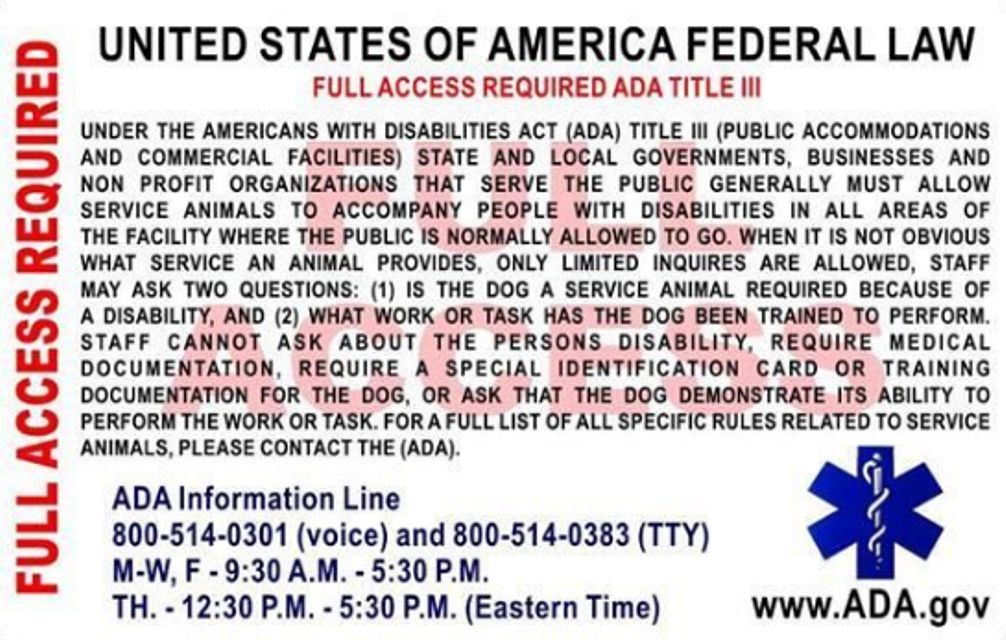
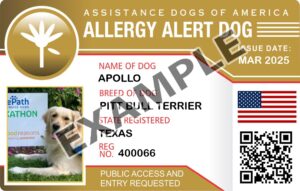
Allergy Alert Service Dog
$25.00An allergy alert dog, or allergen detection dog, is a service dog trained to detect and alert their handler to…Select options -

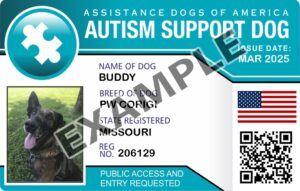
Autism Support Dog
$25.00Autism service dogs are specially trained canines that support individuals with autism, providing stability, reducing anxiety, and assisting with daily…Select options -
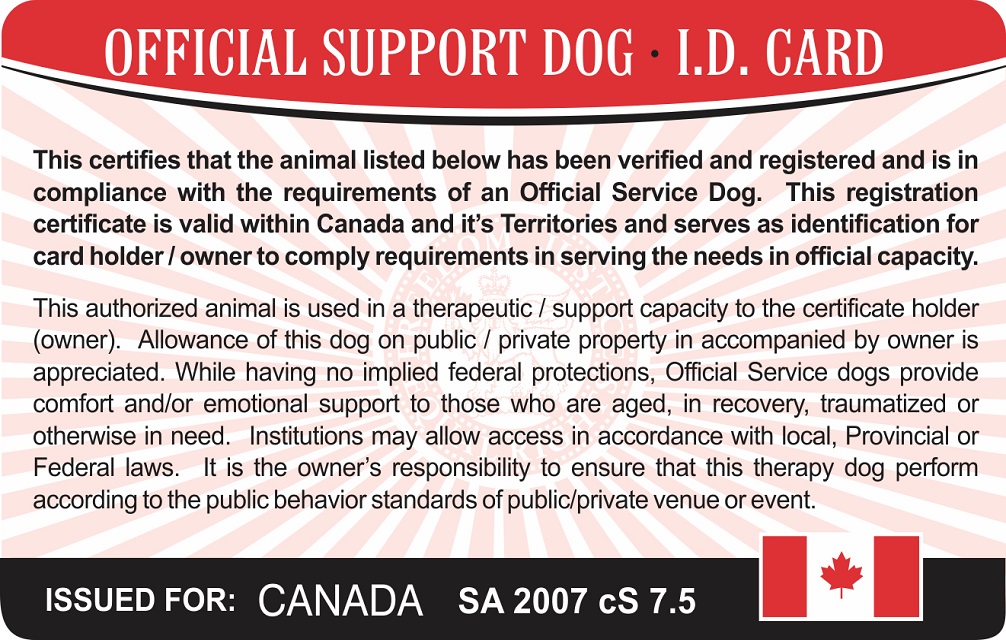
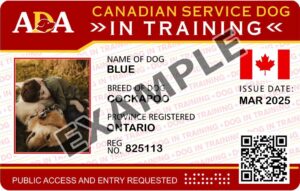
Canada Service Dog In Training
$25.00In Canada, a "service dog in training" is an animal, typically a dog, undergoing specialized training by a person…Select options -


Canadian Service Dog
$25.00In Canada, a service animal is defined as an animal, typically a dog, that is trained by a professional…Select options -

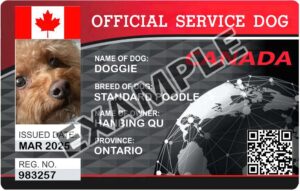
Canadian Service Dog
$25.00In Canada, a service animal is defined as an animal, typically a dog, that is trained by a professional…Select options -

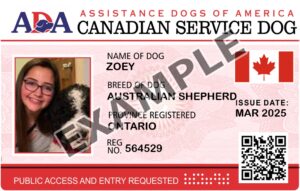
Canadian Service Dog
$25.00In Canada, a service animal is defined as an animal, typically a dog, that is trained by a professional…Select options -

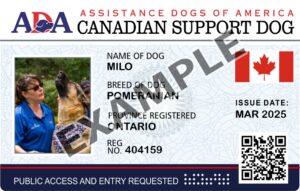
Canadian Support Dog
$25.00In Canada, an Emotional Support Animal (ESA) is a companion animal, like a dog, that provides emotional support to…Select options -

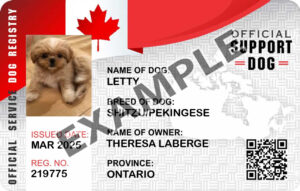
Canadian Support Dog
$25.00In Canada, an Emotional Support Animal (ESA) is a companion animal, like a dog, that provides emotional support to…Select options -


Canadian Support Dog
$25.00In Canada, an Emotional Support Animal (ESA) is a companion animal, like a dog, that provides emotional support to…Select options -
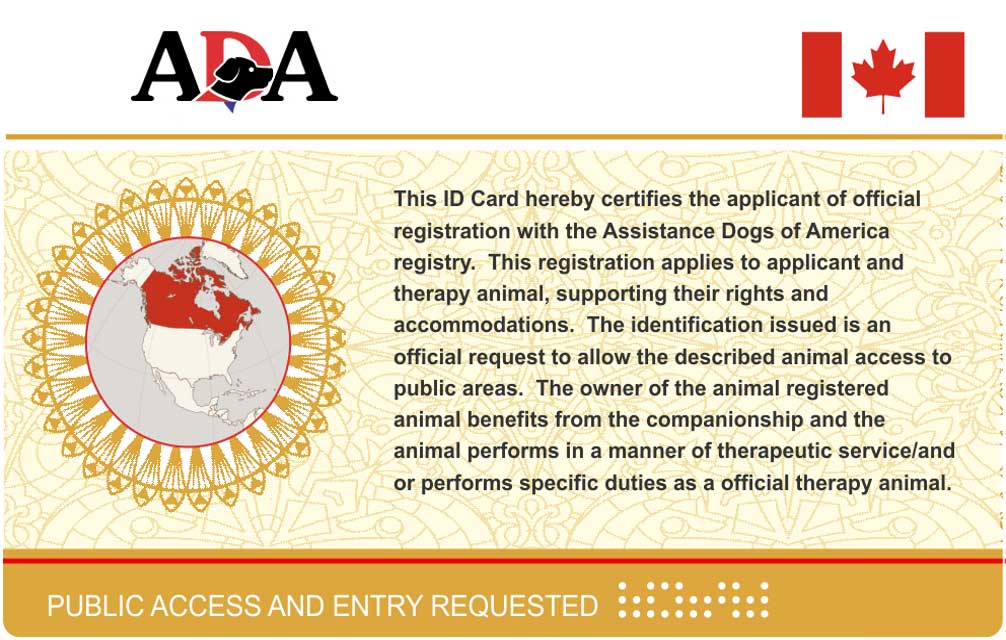
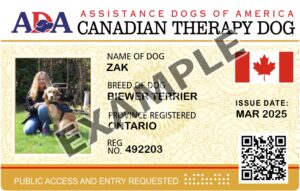
Canadian Therapy Dog
$25.00In Canada, therapy dogs are trained to provide comfort, affection, and support in various settings like hospitals, schools, and nursing…Select options -

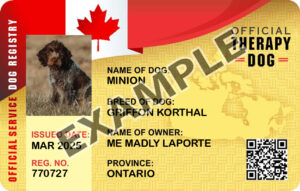
Canadian Therapy Dog
$25.00In Canada, therapy dogs are trained to provide comfort, affection, and support in various settings like hospitals, schools, and nursing…Select options -

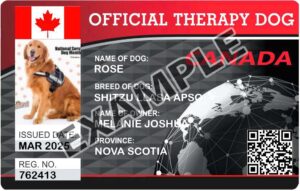
Canadian Therapy Dog
$25.00In Canada, therapy dogs are trained to provide comfort, affection, and support in various settings like hospitals, schools, and nursing…Select options -
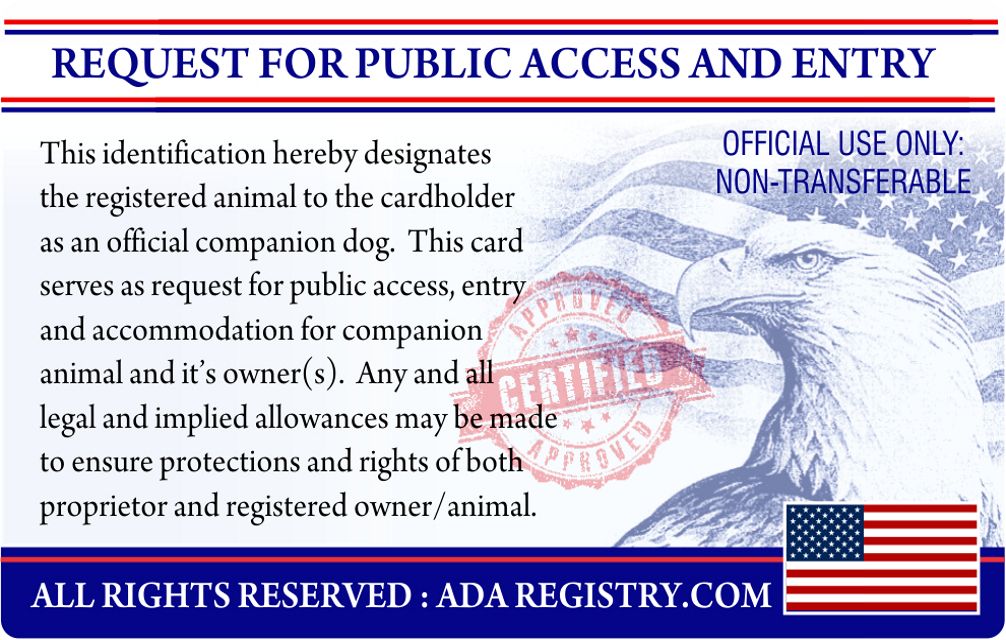
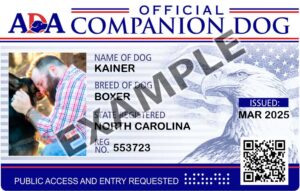
Companion Dog
$25.00A companion dog, also known as an emotional support animal, is a pet that provides companionship and emotional support to…Select options -

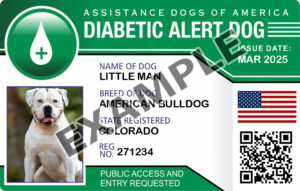
Diabetic Alert Dog
$25.00A diabetic alert dog is a type of medical service dog trained to detect and alert their handler to changes…Select options -

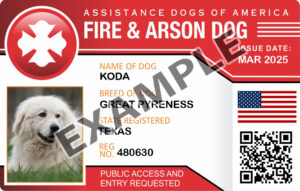
Fire & Arson Dog
$25.00Arson dogs, also known as accelerant detection canines, are specially trained dogs that assist in fire investigations by detecting and…Select options -

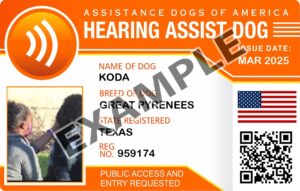
Hearing Assistance Dog
$25.00A hearing assistance dog is a specially trained service dog that alerts individuals who are deaf or hard of hearing…Select options -
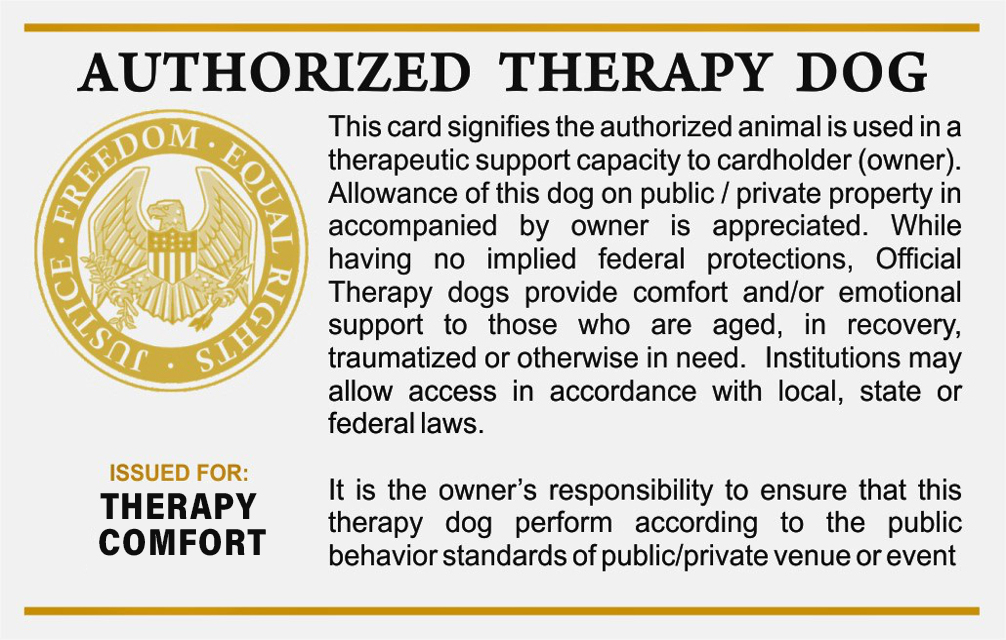
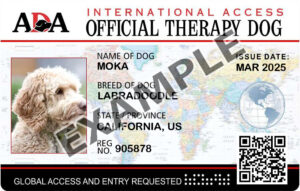
International Card
$25.00An "international Therapy Dog card" (or similar documentation) is a card or certificate issued by a recognized organization to…Select options -

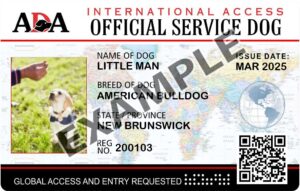
International Service Dog
$25.00An international service dog is a dog, regardless of breed or type, that is individually trained to perform tasks or…Select options -
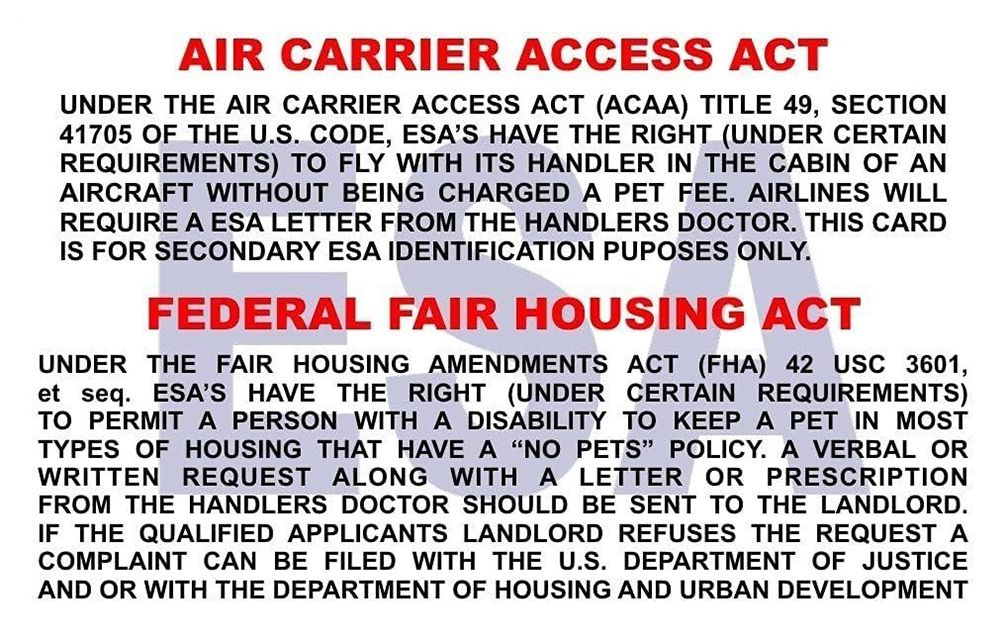
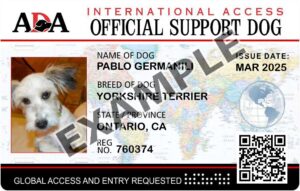
International Support
$25.00An International Emotional Support Animal (ESA) dog is a companion animal that provides emotional support to an individual with a…Select options -

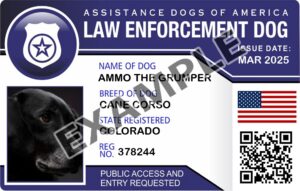
Law Enforcement Dog
$25.00Law enforcement service dogs, or K-9 units, are highly trained canines that assist police and other law enforcement officers in…Select options -

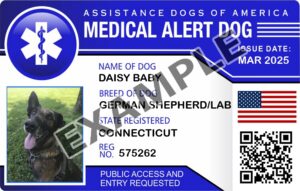
Medical Alert Dog
$25.00Medical alert dogs are specially trained assistance animals that can detect and alert their handlers to specific medical conditions, such…Select options -

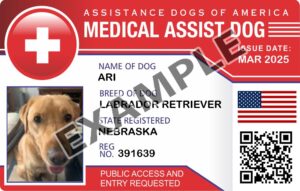
Medical Assist Dog
$25.00A medical assistance dog, or medical alert dog, is a service dog trained to assist individuals with medical conditions by…Select options -

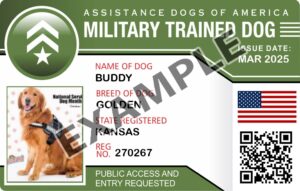
Military Trained Dog
$25.00Military working dogs (MWDs), or K-9s, are highly trained canines serving in various branches of the armed forces, performing tasks…Select options -

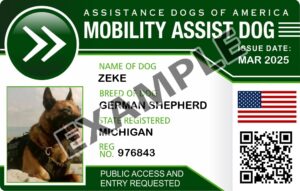
Mobility Assist Dog
$25.00A mobility assistance dog, or mobility service dog, is a service dog trained to assist individuals with mobility impairments, such…Select options -

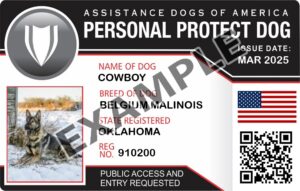
Personal Protection Dog
$25.00A personal protection dog is a highly trained dog, often from breeds like German Shepherds or Dobermans, capable of protecting…Select options -

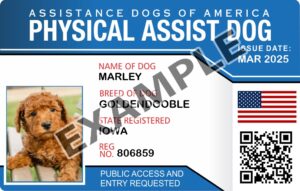
Physical Assist Dog
$25.00A physical assistance dog, also known as a mobility assistance dog or mobility service dog, is trained to help individuals…Select options -

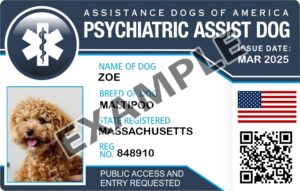
Psychiatric Assistance
$25.00A psychiatric service dog (PSD), or psychiatric assistance dog (PAD), is a type of service animal trained to perform specific…Select options -

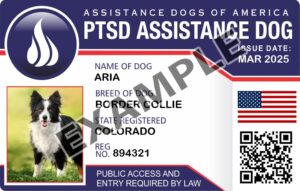
PTSD Assistance Dog
$25.00A PTSD service dog is a specially trained canine that performs tasks directly related to an individual's PTSD symptoms, like…Select options -

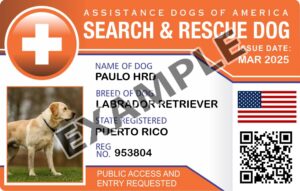
Search And Rescue Dog
$25.00Search and Rescue (SAR) service dogs are specially trained canines that use their keen sense of smell to locate missing…Select options -

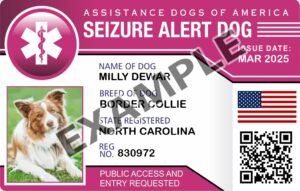
Seizure Alert Dog
$25.00A seizure alert service dog is a specially trained canine that assists individuals with epilepsy by alerting them to an…Select options -

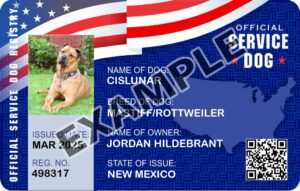
Service Dog ID Card
$25.00A service dog is a dog trained by a trainer or by the owner to perform specific tasks or…Select options -

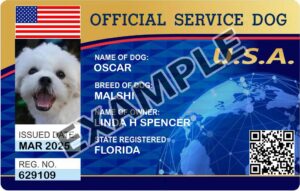
Service Dog ID Card
$25.00A service dog is a dog trained by a trainer or by the owner to perform specific tasks or…Select options -

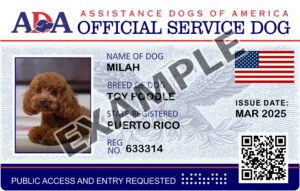
Service Dog ID Card
$25.00A service dog is a dog trained by a trainer or by the owner to perform specific tasks or…Select options -

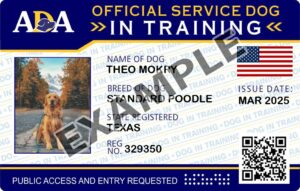
Service Dog In Training Card
$25.00A "service dog in training" refers to a dog undergoing specific training to perform tasks that assist a person with…Select options -


Support Dog Card
$25.00An emotional support animal (ESA) is a companion animal that helps relieve symptoms of a disability. ESAs can be any type…Select options -

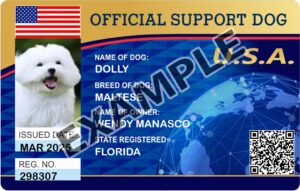
Support Dog ID Card
$25.00An emotional support animal (ESA) is a companion animal that helps relieve symptoms of a disability. ESAs can be any type…Select options -

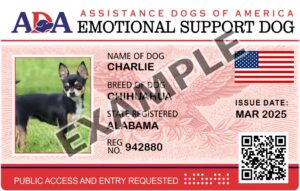
Support Dog ID Card
$25.00An emotional support animal (ESA) is a companion animal that helps relieve symptoms of a disability. ESAs can be any type…Select options -

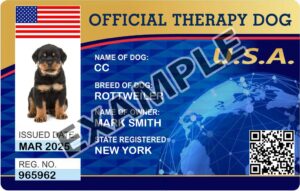
Therapy Dog ID Card
$25.00A therapy dog is a dog trained to provide comfort, affection, and support to people in various settings like hospitals,…Select options -


Therapy Dog ID Card
$25.00A therapy dog is a dog trained to provide comfort, affection, and support to people in various settings like hospitals,…Select options -

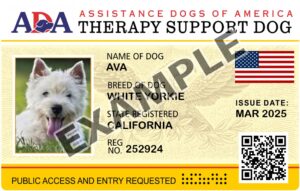
Therapy Dog ID Card
$25.00A therapy dog is a dog trained to provide comfort, affection, and support to people in various settings like…Select options -

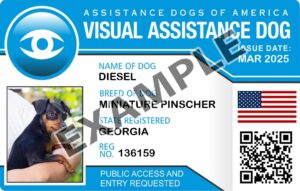
Visual Dog ID Card
$25.00A visual assistance dog, also known as a guide dog or seeing-eye dog, is a specially trained service animal that…Select options -

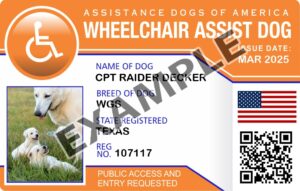
Wheel Chair Card
$25.00A wheelchair assistance dog, or mobility assistance dog, is a service dog trained to help individuals with mobility issues, including…Select options
 Loading...
Loading... All products loaded

